- Home
- About ANT
-
Products
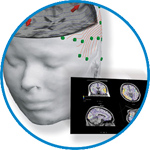
asa
asa is a highly flexible EEG/ERP and MEG analysis package with a variety of source reconstruction, signal analysis and MRI processing features.
.jpg)
eego mylab
The new frontier in multimodal brain research. With up to 16 kHz sampling rate, 256 EEG channels and unique software features, eego mylab gives you an unprecedented in-depth understanding of the human brain.
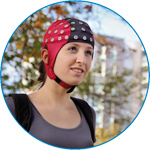
eego sports
eego sports offers complete freedom to collect high-density EEG data, bipolar EMG signals, and a variety of physiological sensor data, wherever and whenever required, with publish quality data in less than 15 minutes!
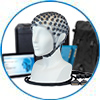
waveguard net
The waveguard net sets a new standard for research applications requiring high-density EEG data acquisition with quick preparation time, high flexibility, and subject comfort.
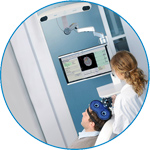
visor2
Our new and upgraded visor2 solutions integrate all the latest technologies for navigated rTMS, dual-coil navigation support, EEG-TMS recordings and pre-surgical evaluation for the highest quality in research and clinical procedures.
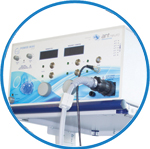
powerMAG ANT
The PowerMAG ANT 100 rTMS stimulator is designed for the specific needs of high-end TMS applications. Powerful high-frequency TMS as well as high precise single pulse and repetitive pulse protocols are combined in one single device.
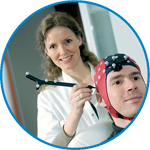
xensor
xensor offers the solution for digitization of 3D electrode positions. xensor takes care of the whole procedure; it records, visualizes and stores positions acquired with a dedicated digitizer.
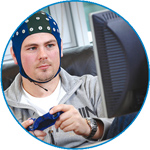
waveguard original
waveguard original is the cap solution for EEG measurements compatible with fMRI, MEG and TMS system. Use of active shielding guarantees performance in even the most demanding environments.
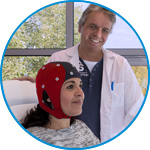
waveguard connect
waveguard connect EEG caps are a perfect match for hospitals and institutes aiming at reliable EEG, maximum uptime and great patient comfort! For optimal signal quality, the electrodes are made of pure, solid tin.
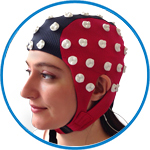
waveguard touch
waveguard touch is a dry electrode EEG cap. The unique Ag/AgCl coated soft polymer electrodes provide stable, research-grade EEG signals while maintaining subject comfort. The combination of these innovative dry electrodes and the industry-leading waveguard cap makes waveguard touch the best solution for dry EEG.
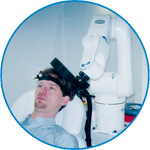
smartmove
smartmove allows planning of a complete TMS session ahead by defining stimulation sites based on anatomical MRI information and functional information like fMRI, PET or EEG/MEG.
Stay - References
- Support
- Events
- News
- Contact Us
You are here
Effect of antipsychotic pharmacotherapy on clinical outcomes of intermittent theta-burst stimulation for refractory depression
Effect of antipsychotic pharmacotherapy on clinical outcomes of intermittent theta-burst stimulation for refractory depression
Theta-burst stimulation is an emerging protocol for repetitive transcranial magnetic stimulation that takes 1–3 min to administer, yet offers equal/superior potency to conventional protocols lasting 30–60 min. However, preclinical evidence suggests that D2 receptor blockade may abolish the acute effects of theta-burst stimulation on synaptic facilitation or inhibition. As many patients presenting for repetitive transcranial magnetic stimulation are taking antipsychotic medications as augmentation for treatment-resistant depression, this finding is potentially concerning for the implementation of theta-burst stimulation in clinical settings. Here, we examined whether treatment-resistant depression patients taking antipsychotics have worse outcomes after a course of intermittent theta-burst stimulation. A chart review identified 105 treatment-resistant depression patients who underwent dorsomedial prefrontal-intermittent theta-burst stimulation; clinical outcomes on Hamilton Depression Rating Scale and Beck Depression Inventory were compared for those taking and not taking antipsychotics. The 29 of 105 patients who were taking antipsychotics showed non-significantly better response and remission rates, and non-significantly larger percentage improvements on both scales, with a positive but non-significant correlation between higher antipsychotic dose and larger percentage improvement. Contrary to expectations, outcomes were not significantly worse, and in some analyses trended towards being better, in patients taking antipsychotics. Future randomized controlled studies of repetitive transcranial magnetic stimulation combined with standardized dopaminergic manipulations may be justified and warranted.
Re4ad more: http://journals.sagepub.com/doi/abs/10.1177/0269881116675516

 Read more
Read more.jpg)




